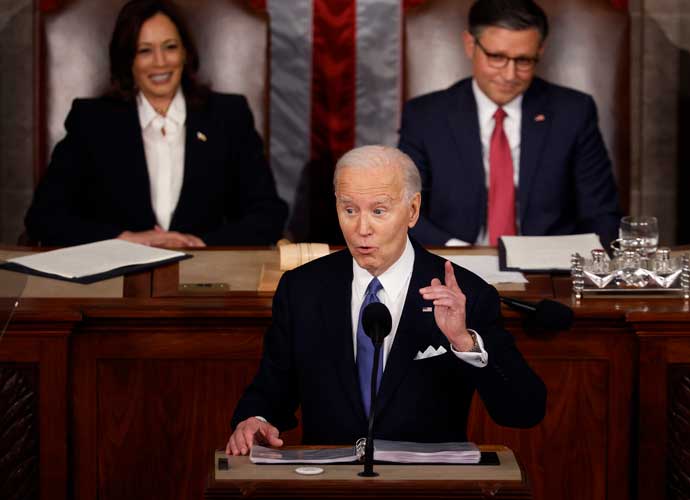Biden Announces Sharp Increases In Chinese Tariffs, Building On Trump’s Program
On Tuesday, President Joe Biden announced his plan to enact an $18 billion tariff increase on Chinese imports across various sectors, building on former President Donald Trump‘s previous Chinese tariff program.
Tariff increases will apply to imported electric vehicles, legacy semiconductors, battery components, critical minerals, solar cells, cranes and medical products. Other tariffs will affect industries in crucial swing states, including heavy metals such as steel and aluminum.
Biden’s tariff program coincides with national security strategic efforts to curtail Beijing’s unfair manufacturing and trading practices. These efforts attempt to impede China’s development of critical technologies and instead prioritize U.S. production.
Seeking to shield American industries from unfairly subsidized Chinese competitors, Lael Brainard, director of the White House National Economic Council, said, “China’s using the same playbook it has before to power its own growth at the expense of others.” She added, “China’s simply too big to play by its own rules.”
Subscribe to our free weekly newsletter!
A week of political news in your in-box.
We find the news you need to know, so you don't have to.
Over the next two years, tariff rates will range from 100% on electric vehicles, 50% on solar components and 25% on all other sectors. The most significant increase will be in electric vehicle imports, with tariffs quadrupling from 27.5% to 100%.
With tariff increases on electric vehicles, the Biden Administration hopes to challenge Beijing’s practice of promoting aggressively low pricing among domestic electric vehicle manufacturers while imposing a 40% tariff on U.S. car imports.
On Tuesday, Biden announced, “We’re not going to let China flood our market, making it impossible for American automobile manufacturers to compete fairly.” He added, “I’m determined that the future of electric vehicles will be made in America by union workers, period.”
Despite the latest escalation in the U.S.-China trade war, Biden clarified that he seeks “fair competition with China, not conflict.”
Biden’s recent tough-on-China appeals coincide with efforts to win over swing voters in the industrial Midwest and beyond. Biden announced that he hopes to use government investments in manufacturing, such as electric vehicles and green technologies, to create more middle-class jobs in the industrial Midwest.
Brainard said, “We know China’s unfair practices have harmed communities in Michigan and Pennsylvania and around the country that are now having the opportunity to come back due to President Biden’s investment agenda.”
Despite criticizing Trump’s high tariffs, calling them “taxes on American consumers” during his 2020 presidential campaign, Biden has officially announced his plans to maintain the Trump Administration’s $300 billion Chinese tariff program.
However, under Biden’s new tariff regulations, White House officials emphasized their commitment to redrawing the program’s parameters to reflect the administration’s policy priorities, namely the transition to clean energy.
In response to Biden’s heightened tariffs, Wang Wenbin, Chinese foreign ministry spokesperson, told CNN on Tuesday that they oppose “the unilateral imposition of tariffs which violate [World Trade Organization] rules, and will take all necessary actions to protect its legitimate rights,” calling it “typical political manipulation.”
While a handful of Democratic lawmakers support Biden’s decision, criticism has been widespread. Colorado Gov. Jared Polis (D) wrote on social media, “This is horrible news for American consumers and a major setback for clean energy.”
Despite resistance domestically and abroad, U.S. officials said they expect domestic prices to stay the same, given the tariffs’ narrowly targeted nature.
Get the most-revealing celebrity conversations with the uInterview podcast!







Leave a comment